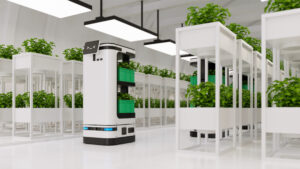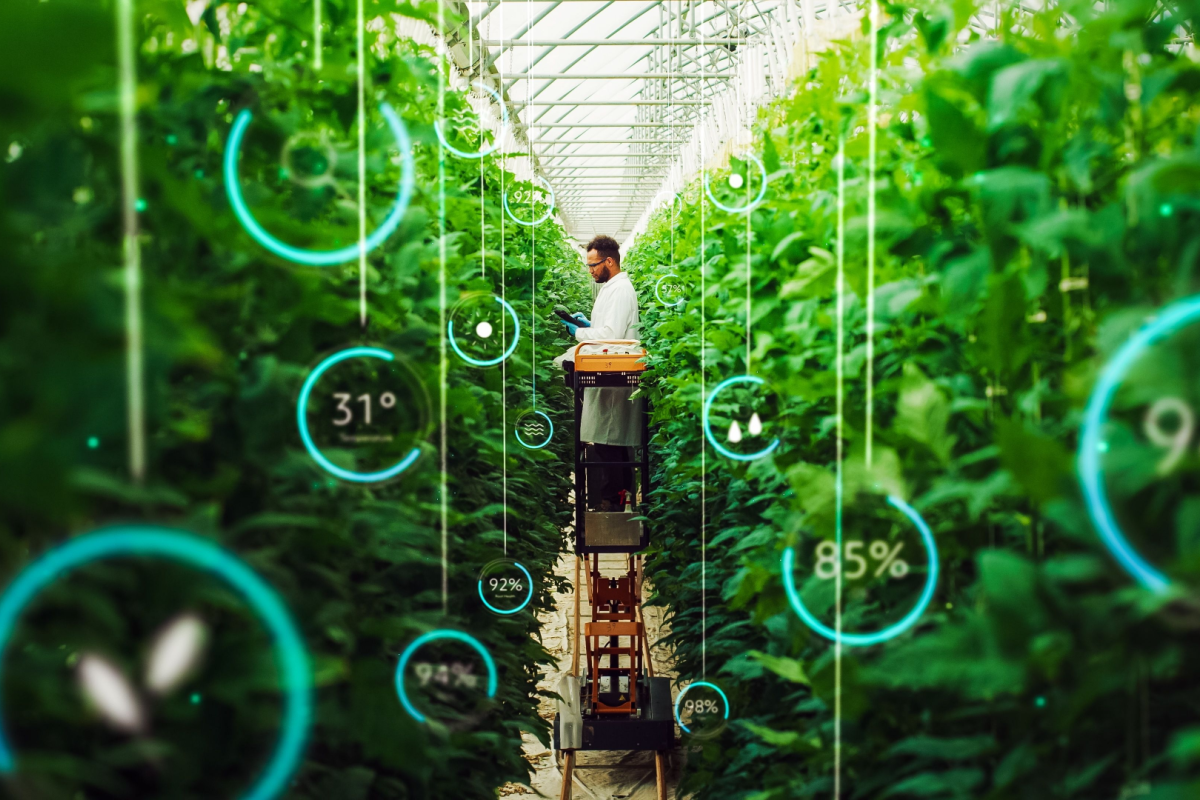As we step into 2024, the food industry is poised to be at the cusp of transformative changes, shaped by evolving consumer preferences, technological advancements and a growing emphasis on sustainability. Here, we delve into the 2024 food industry trends from leading experts in the field, each offering a unique perspective on the trends and challenges that will define the landscape of food production, distribution and consumption in the coming year.
From the rise of plant-based products to the integration of advanced technologies like blockchain and AI, these insights paint a picture of an industry undergoing rapid and significant evolution. Sustainability emerges as a central theme, with companies increasingly focusing on ethical sourcing, reducing food waste and embracing environmentally friendly practices. At the same time, digital transformation is revolutionizing how we market, distribute and engage with food products, catering to a more connected and health-conscious consumer base.
Xtalks spoke to several food industry experts in various sectors to learn about their 2024 food industry trends. Whether you’re a stakeholder in the food sector, a consumer keen on understanding future trends or simply someone interested in the intersection of technology, nutrition and sustainability, read on to learn valuable insights into the future of our food systems.
Related: 3 Food and Beverage Industry Trends for 2023
The Critical Role of Data

In his 2024 food industry trends, Are Traasdahl, founder and CEO of Crisp, presents a forward-looking view of the food and beverage industry. Traasdahl predicts that 2024 will mark a new era for the food industry, characterized by advanced demand sensing, smarter data use for sustainability and availability and more nimble supply chains amid consumer preference shifts.
“In 2024, food and beverage brands will leverage real-time data to match product availability and preference to true consumer demand,” says Traasdahl.
This shift will be powered by advancements in data analytics and technology, leading to more accurate predictions of shelf-level inventory. Brands will use historical data and contextual factors like weather and demographics, enhancing collaboration with retailers for efficient inventory management and reduced out-of-stock.
Smarter utilization of data will also be key to reducing food waste and improving product availability. He cites an example of a chocolate brand that used real-time supply chain data to track inventory and reduce spoilage. “By leveraging the latest sales and inventory data, the brand reduced spoilage, improved loyalty and boosted the bottom line by keeping the most in-demand SKUs always in stock.”
Lastly, Traasdahl predicts that supply chains will become more agile in 2024, adapting to changing consumer preferences. He highlights the importance of visibility into near-real-time inventory levels to align supply and demand accurately.
“New real-time inventory tracking to store shelves will allow [consumer packaged goods] CPG brands to meet demand fluctuations, resulting in stronger brand loyalty through consistent in-stocks even as consumer preferences evolve.”
AI in Agriculture
Brian Wenngatz, CEO of Sentera, offers insightful predictions for the agricultural sector in 2024. He foresees an accelerated adoption of generative AI in agriculture. Wenngatz predicts this technology will play a crucial role in informing machine learning models, reducing the costs and time needed for training data collection.
generative AI in agriculture. Wenngatz predicts this technology will play a crucial role in informing machine learning models, reducing the costs and time needed for training data collection.
He emphasizes that this advancement will “accelerate the development of transformational agronomic analytics” to support product development and precision application technology. This use of synthetic imagery generation is expected to be a game-changer in AgTech.
Wenngatz also anticipates a continued emphasis on more precise crop protection methods. He attributes this to regulatory demands and sustainability concerns. To meet these requirements, the industry will need to integrate new digital technologies for efficient management of diseases, pests and weed impacts on crop yields. He notes that these advancements are necessary for ensuring better yield and adherence to evolving regulatory and sustainability standards.
Next year will additionally see advanced collaboration between AgTech and agriscience leaders. He sees agriscience organizations increasingly leveraging AgTech’s specialized capabilities to expedite their product pipelines, research and the development of innovative precision application technologies. This partnership, he believes, will lead to more efficient and effective solutions in the agricultural sector.
Improving Transparency and Efficiency
Pat McCullough, CEO of ProducePay, shares his 2024 food industry trends, focusing on key areas of innovation and sustainability. McCullough notes the perishable produce industry is still quite analog and faces challenges in data extraction to feed blockchain solutions. He describes ProducePay’s role as a data gatherer and organizer, emphasizing the need for data accumulation as a precursor to effective blockchain implementation. This reflects an early stage in the industry’s digital transformation.
McCullough also points out that while the demand for produce is fairly stable, supply is not, leading to significant price volatility and food waste.

“We have the most mismatched supply and demand, which drives incredible price volatility,” McCullough says. “It was studied to be 117 percent last year across all perishable produce categories. That includes melons at 400 percent, tomatoes at 400 percent and grapes at 200 percent. And it’s because there are surety of supply issues that are the primary buying criteria for big retail grocers.”
McCullough also highlights monitoring as a significant challenge in implementing sustainable practices. The need for a global footprint and real people on the ground for quality monitoring remains essential, reflecting the complexities of sustainable agriculture on a large scale. He mentions using smartphone apps for objective measurement of produce quality, improving spec adherence and reducing rejection rates at distribution centers.
When it comes to consumer preferences and behaviors, he observes a trend towards premium fruit varieties, especially blueberries, and notes the global expansion of produce supply chains. McCullough discusses the challenges of meeting consumer expectations for immediate product availability, which strains supply chains and necessitates advanced technological solutions like blockchain.
Although McCullough predicts continued challenges with supply shortages and pricing pressures, he emphasizes the importance of technology in improving transparency and efficiency in the produce supply chain.
Continued Demand for Plant-Based Products
Michael Lines, CEO and President of Wellness Natural Inc., which owns SimplyProtein, outlines his 2024 food industry trends, focusing on the continued rise in demand for plant-based products, the importance of nutritious yet flavorful snacks and the focus on sustainability.
Lines foresees a growing demand for plant-based products beyond traditional dairy and meat alternatives, especially in the snacking segment. He highlights SimplyProtein’s alignment with this trend, offering plant-based ingredients in their snacks.
Another trend Lines anticipates is the demand for snacks that combine exceptional flavor with nutritional value, reflecting a deeper consumer awareness of taste and health benefits. SimplyProtein’s Dipped Bars exemplify this trend, offering both taste and protein. There will also be an increased interest in transparent and simple ingredients. Consumers will prefer snacks with easy-to-understand ingredients and everyday protein use.
The need for convenient yet nutritious products will continue as consumers seek portable snacks that don’t compromise on health, reflecting

a fast-paced lifestyle.
“Consumers will continue to look for products that are convenient but don’t sacrifice nutrition while on the go,” Lines says. “Life continues to get busier and consumers need portable snacks to sustain them anytime and anywhere.”
In 2024, consumers are expected to adopt a more holistic approach to health, looking for products that cater to a broad range of health needs. Consumers will also show growing interest in sophisticated texture and flavor profiles in snacks. SimplyProtein’s Snack Bars and Plant Protein+ Shakes are examples of products catering to these evolving preferences.
“You’ll see increased focus in two areas minimum: one, continuing to evolve plant-based alternatives into the center plate and everyday meal occasions; and two, a renewed focus on ingredients with a view to price/value versus analog comparisons,” Lines points out.
The biggest challenges in the plant-based sector will be meeting rising consumer expectations and navigating supply chain complexities and inflation. Lines emphasizes the need for innovation, agility and inclusivity in product offerings.
Lines advises new companies in the health and wellness sector to embrace diversity in product offerings and marketing strategies. Understanding and catering to various consumer needs is key. He highlights the importance of unique products, authentic brand stories and a commitment to inclusivity.












Join or login to leave a comment
JOIN LOGIN